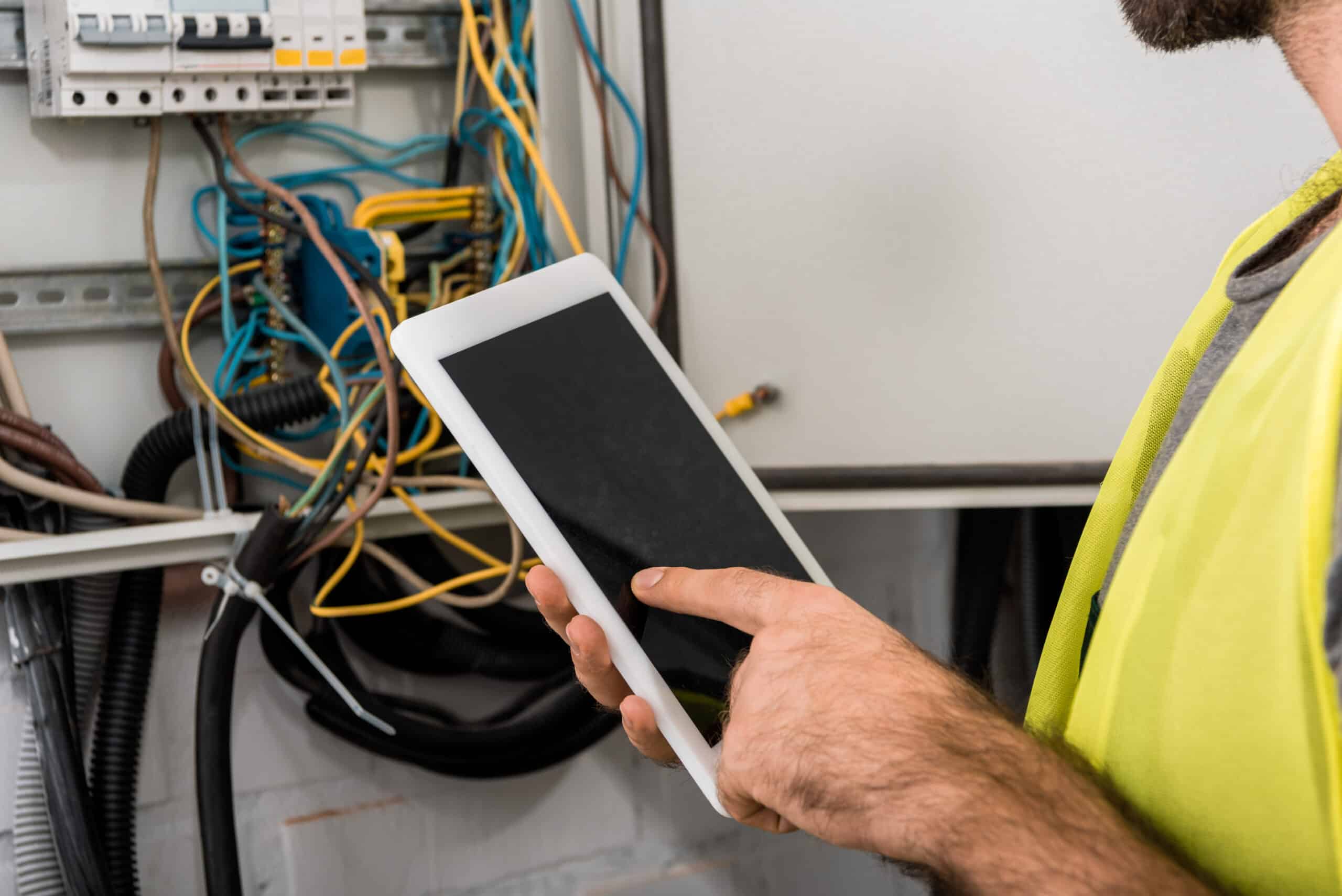The Bottom Line: Your business WiFi isn't just another utility, it's the digital foundation that either empowers or cripples your operations. With one in five UK businesses struggling with slow or unreliable connectivity, getting this right isn't optional.
What You Need to Know:
The Silver Lining Advantage: Rather than offering generic packages, Silver Lining designs Wi-Fi solutions around your specific business needs, ensuring you get enterprise-grade performance without the complexity of an enterprise-level solution.
Picture this: you're in the middle of a crucial video call with your biggest client when your WiFi decides to take an unscheduled tea break. The screen freezes mid-sentence, leaving you looking like a digital statue whilst your client's patience evaporates faster than a puddle in the Sahara. Sound familiar? You're not alone; roughly one in five UK businesses cite slow or unreliable broadband as a significant operational headache.
In today's hyperconnected business landscape, WiFi isn't just another office amenity like the coffee machine or that slightly wonky printer everyone pretends to know how to fix. It's the invisible backbone that keeps your entire operation running smoothly. From cloud-based accounting software to Teams meetings, from inventory management to customer relationship systems, nearly every aspect of modern business relies on robust, reliable connectivity.
Yet, despite its critical importance, many businesses still treat WiFi as an afterthought, something to sort out after the desks are arranged and the kettle is plugged in. This approach is akin to building a house and then wondering where to install the electricity. It works, but it's far from optimal.
The financial impact of poor connectivity is staggering. Research shows that slow or unreliable internet costs the average UK employee over 38 hours and approximately £494 in lost productivity each year. For businesses, particularly SME's, this translates into billions in lost revenue, with SMEs in London alone losing an estimated £28 billion annually due to inadequate broadband infrastructure. These aren't just statistics; they represent real businesses struggling with fundamental connectivity issues that directly impact their bottom line.

Fast, reliable WiFi isn't just about avoiding frustration, it's about unlocking your team's potential. Enhanced collaboration through seamless video conferencing, instant file sharing, and consistent access to cloud-based tools has become essential for modern hybrid and remote work environments. When your WiFi works flawlessly, your team can focus on innovation and productivity rather than wrestling with technology.
The scalability and flexibility that modern WiFi solutions provide cannot be overstated. Quality WiFi investments can deliver returns within 14 months through reduced downtime, enhanced collaboration, and elimination of expensive cabling infrastructure. Wireless solutions reduce maintenance costs and support flexible working arrangements that today's workforce expects.
From a security and compliance perspective, reliable WiFi networks come equipped with advanced security features that help businesses protect sensitive data and meet increasingly stringent regulatory requirements. This isn't just about preventing data breaches, it's about maintaining customer trust and avoiding potentially devastating compliance penalties.
When it comes to business WiFi, speed isn't just about bragging rights or making your IT-savvy nephew impressed. It's about productivity, efficiency, and ultimately, profitability. Modern businesses demand upload and download speeds that can handle multiple simultaneous video conferences, large file transfers to cloud storage, and seamless access to web-based applications, all without breaking a sweat.
The reality is that today's business applications are increasingly data-hungry. That innocent-looking CRM system? It's constantly syncing data to the cloud. Your accounting software? It's backing up transactions in real-time. Your team's collaboration tools? They're sharing files, streaming video, and updating documents simultaneously across multiple devices.
Silver Lining's WiFi solutions understand this reality. Rather than offering one-size-fits-all packages, they assess your specific business needs and design networks that can handle peak demand without the digital equivalent of rush-hour traffic jams. Their enterprise-grade solutions ensure that when your sales team is demonstrating your product via video call, whilst your accounts department uploads the monthly reports to the cloud, neither activity suffers.
Reliability is equally crucial. There's little point in having lightning-fast speeds if your connection drops out more often than a university student's attendance. The variance in connectivity reliability across the UK is striking, whilst cities like Gloucester experience only 8% of businesses reporting outages in the past year, Belfast sees 51% of companies affected, highlighting how infrastructure quality can vary dramatically by location.
Business-grade WiFi solutions incorporate redundancy, load balancing, and automatic failover systems to ensure continuity. When your connection is reliable, you can focus on running your business rather than troubleshooting network issues or explaining to clients why you've dropped out of yet another call.
"How many access points do I need?" is one of the most frequently asked questions by business owners when planning their Wi-Fi infrastructure. It's also one of the most important, because inadequate coverage is like having a high-performance sports car with three flat tyres, impressive in theory, disappointing in practice.
UK connectivity guides typically recommend multiple routers or WiFi extenders for offices exceeding 150 feet (46 metres) to maintain consistent performance. However, this rule of thumb doesn't account for building materials, office layout, or the number of devices competing for bandwidth. That lovely Victorian office with its thick brick walls and steel beams might need a more sophisticated approach than a modern glass-fronted space.
Scalability is where many businesses often fall short. They design a network for their current needs, forgetting that successful companies tend to grow and evolve over time. That cosy startup with five employees might double in size within two years, and suddenly the WiFi that seemed perfectly adequate is struggling under the weight of additional devices, increased data usage, and expanded coverage requirements.
Silver Lining's approach to coverage and scalability considers both current needs and future growth. Their site surveys assess not just the physical space but also usage patterns, growth projections, and potential interference sources. The result is a network designed to handle not just today's demands but tomorrow's expansion plans. Their scalable solutions mean you can add capacity and coverage as your business grows, without needing to rip out and replace your entire infrastructure.
Business WiFi security isn't just about preventing unauthorised access, though that's undoubtedly important. It's about creating multiple layers of protection that safeguard your business data, customer information, and operational systems from an increasingly sophisticated array of digital threats.
The challenge is balancing security with usability. Nobody wants a network so locked down that legitimate users spend half their day entering passwords and navigating security protocols. Equally, nobody wants a network so open that it's essentially a welcome mat for cybercriminals.
Guest networks represent a particular challenge. Your clients and visitors need internet access, but you can't simply hand them the keys to your leading business network. It's like giving house guests access to your office filing cabinets, polite, but potentially problematic.
Advanced security features, such as network segmentation, secure guest portals, and integrated firewalls, address these challenges by creating distinct zones within your network, thereby enhancing security. Your central business systems operate in a protected environment, whilst guests access the internet through a separate, monitored channel. Content filtering can block access to inappropriate or potentially dangerous websites, whilst VPN capabilities allow secure remote access for employees working from home or travelling.
Silver Lining's security-focused WiFi solutions incorporate enterprise-grade protection without the complexity typically associated with enterprise-level solutions. Their managed approach means security updates, monitoring, and threat response are handled by specialists, freeing you to focus on your business rather than becoming an amateur cybersecurity expert.
Choosing the right hardware for business WiFi is a bit like selecting the foundation for a building; get it wrong, and everything else becomes problematic. Consumer-grade routers that work perfectly well for home use often struggle to meet the demands of business environments, where multiple users, constant connectivity, and professional-grade reliability are non-negotiable.
Enterprise-grade access points offer several advantages over consumer alternatives. They're designed for continuous operation, handle more simultaneous connections, and provide better coverage and performance. Mesh systems can extend coverage seamlessly across larger spaces, whilst managed WiFi services take the complexity out of setup, monitoring, and maintenance.
The infrastructure decision isn't just about immediate performance; it's about long-term viability. Consumer equipment may need to be replaced every few years, whereas enterprise solutions often provide longer service lives and better upgrade paths. The apparent savings from cheaper hardware can quickly evaporate when factoring in replacement costs, downtime, and lost productivity.
Silver Lining's infrastructure solutions focus on enterprise-grade hardware that's designed for business demands. Their managed approach means you benefit from professional-grade equipment without needing to become a networking expert. Installation, configuration, and ongoing maintenance are handled by specialists, ensuring optimal performance throughout the system's lifecycle.
Business WiFi isn't a commodity purchase; the cheapest option isn't necessarily the best. Unlike residential broadband, business connectivity needs come with specific requirements: guaranteed service levels, rapid fault resolution, static IP addresses, and professional support when issues arise.
When comparing providers, such as BT, Virgin, Sky, TalkTalk, Vodafone, Zen, or others, businesses need to look beyond headline prices to understand the total cost of ownership. This includes contract terms, service level agreements, support quality, and additional features that might prove essential.
Fixed-price guarantees can provide budget certainty, particularly important for businesses with tight margins. Twenty-four-seven support ensures that network issues don't bring operations to a halt outside regular business hours. Backup solutions and redundancy options provide insurance against outages that could prove costly.
Static IP addresses might seem like a technical detail, but they're essential for businesses running their own servers, accessing systems remotely, or integrating with third-party services. Professional-grade service level agreements ensure that when problems occur, they're resolved quickly, rather than when convenient for the provider.
Silver Lining's business-focused approach recognises that different industries and business models have different connectivity needs. Their solutions are tailored rather than standardised, ensuring you pay for features you'll use rather than a one-size-fits-all package that might include unnecessary elements whilst missing crucial requirements.
Installing business WiFi isn't just about plugging in a router and hoping for the best. Professional installation ensures optimal placement of access points, proper configuration of security settings, and integration with existing systems. It also provides a foundation for ongoing support and maintenance.
Professional installers understand the subtle factors that can significantly impact WiFi performance, including building materials that interfere with signals, optimal mounting positions for access points, and configuration settings that strike a balance between performance and security. They also provide documentation and support that becomes invaluable when issues arise or expansion is needed.
The peace of mind that comes with professional installation and ongoing support is particularly valuable for businesses where connectivity is critical. When your WiFi is professionally managed, problems are often identified and resolved before they impact operations.
Technology evolves rapidly, and WiFi standards are no exception. What seems cutting-edge today might be obsolete in five years. Future-proofing your WiFi investment means selecting solutions that can adapt and upgrade rather than requiring complete replacement.
Key considerations include support for emerging standards, the capacity to handle increased bandwidth demands, and compatibility with new devices and applications. A well-designed business Wi-Fi system should accommodate growth and technological advancements without requiring frequent major overhauls.
The Internet of Things (IoT) is driving increased connectivity among devices in business environments. From bright lighting and HVAC systems to security cameras and inventory sensors, the number of connected devices is skyrocketing. Your WiFi infrastructure needs to handle this increased load whilst maintaining performance for traditional computing and communication needs.
Selecting the right WiFi solution for your business requires careful consideration of current needs, future plans, and budget constraints. It's a decision that affects daily operations, productivity, and ultimately, business success.
Professional assessment and consultation can help identify the optimal solution for your specific circumstances. This might involve site surveys, usage analysis, and discussions about business objectives and growth plans.
Investing in proper business Wi-Fi infrastructure pays dividends in improved productivity, reduced downtime, and enhanced professional capabilities. It's one of those behind-the-scenes improvements that make everything else work better.
Q: How do I know if I need business-grade WiFi rather than a standard home router?
A: If you have more than a few employees, rely on cloud-based applications, conduct video conferences, or handle sensitive data, business-grade WiFi is worth considering. Home routers often struggle to handle multiple simultaneous users and lack the security features businesses require.
Q: What's the difference between WiFi coverage and WiFi capacity?
A: Coverage refers to the physical area where you can connect to the network, whilst capacity refers to how many devices can connect simultaneously without performance degradation. You might have excellent coverage but poor performance if the capacity is insufficient for your needs.
Q: How often should business WiFi equipment be replaced?
A: Enterprise-grade equipment typically lasts 5-7 years, although this duration depends on usage, technological advancements, and evolving business needs. Consumer-grade equipment normally needs to be replaced every 2-3 years in business environments.
Q: Can I upgrade my existing WiFi system, or do I need to start from scratch?
A: This depends on your current setup and requirements. A professional assessment can determine whether existing infrastructure can be upgraded or if replacement is more cost-effective.
Q: What should I look for in a business WiFi service level agreement?
A: Key elements include response times for faults, guaranteed uptime percentages, performance guarantees, and clear escalation procedures. Twenty-four-seven support is particularly valuable for businesses that operate outside standard hours.
Q: How important is WiFi 6 for business applications?
A: WiFi 6 offers improved performance, better handling of multiple devices, and enhanced security features. For businesses with high device density or bandwidth-intensive applications, WiFi 6 can provide significant benefits.
Q: Should I manage my business WiFi in-house or use a managed service?
A: This depends on your technical expertise and resources. Managed services offer professional expertise, ongoing support, and often superior equipment, albeit at a higher cost than DIY approaches. For most businesses, the benefits of managed services outweigh the additional expense.
Q: How can I ensure my guest WiFi is secure?
A: Proper guest WiFi setup includes network segmentation, bandwidth limitations, content filtering, and time-based access controls. Guest networks should be completely separate from your main business network, with no access to internal systems or data.

